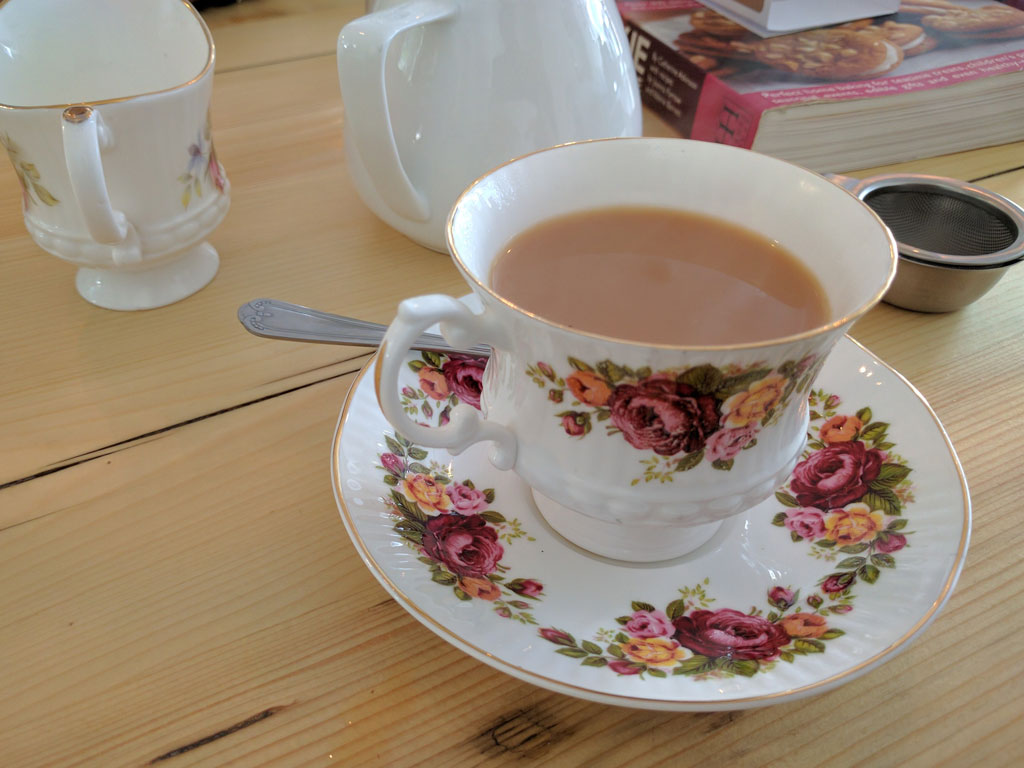Wellness tea – a national disgrace
- Complaining about the Mainland - 17th August, 2024
- New island designation – is it just greenwash? - 26th April, 2024
- Police and Crime Commissioners – a solution or a problem? - 21st April, 2024
Like it or not we’re all having to give some thought right now to the question of what makes us British. In case you think I exaggerate, the very existence of the United Kingdom is feasibly a casualty of the current political crisis we have made for ourselves. If that doesn’t focus the mind on national identity it’s hard to think of something that might. Actually, hold on, I’ve thought of something. No, really, I have, and it’s a whopper. Let me talk to you about tea.
The very essence of British society, both in caricature and in reality, is the making and drinking of tea. George Orwell wrote in 1946 “tea is one of the main stays of civilization in this country.” But Orwell would be astounded and maybe horrified by the state of today’s British tea-drinking landscape.
The good news is that that the amount and particularly the value of tea drunk is going up. But before you feel a surge of patriotic fervour rise, a 2018 report from National Tea Day reveals that the landscape of the United Kingdom’s favourite drink is astir. Health-conscious young people are ditching a traditional breakfast brew in favour of what is euphemistically described as “wellness teas” – and they are apparently willing to pay up to £5 a cup for this.
Diaz Ayub, a man with the glorious job title of tea futurist, explained, “The report indicates that the tea occasion has changed, from that of indulgence and gluttony to one of sensuality and mindfulness”. Now I’m hardly one to gainsay such wisdom, but I really cannot equate a mug of solid builder’s tea with either indulgence or gluttony. A cup of tea cannot be constrained into a product to be dispensed by sommeliers, curated by tea futurists, or cherished by mindfulness gurus. The ritual of the teamaking, the offering of a cup, the searing heat of a fresh brew, the wisp of steam in the sunlight, has much more to it.
Think back to pivotal moments in your life. Maybe the receipt of momentous news, the birth of a child, the loss of a relative, or a rendezvous with a lover. Never far from you was the offer, and receipt, of a cup of tea. Real, hot, tea, with milk and probably sugar if you wanted it. Somebody comforted you, reached out to you, or sought contact with you by the simple but universal act of sharing tea. This is a part of British life that permeates all classes and professions. Little wonder the British Army developed the Boiling Vessel for their tanks in recognition of the importance of a hot cup of freshly brewed tea for soldiers in action.
I salute those who seek to sell wellness teas to millennials, but I trust that the younger generation of tea drinkers will see past the hype and cherish the traditional British pot of tea for the positive symbol of national community that it is, just as their parents and grandparents do.
This article first appeared in print in the Isle of Wight County Press.

